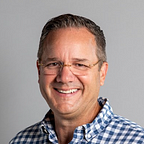A Visit Would Be Sweeter Without the Sugary Drinks
An open letter to Busch Gardens
Dear Busch Gardens,
A couple of months ago, my family visited Busch Gardens in Tampa. I can’t recommend the place enough. The weather was beautiful, the attractions were fun, and we enjoyed watching the orangutans, tigers and other animals in all their majestic presence. We’ve visited there often in the past, but I want to share with you a couple of things that really stuck in my mind during our last visit.
First, far too many of the visitors were overweight, seriously overweight. Second, a lot of them were toting around large, 28 oz. cups filled with various soft drinks. At one of the snack areas, I learned you could buy a souvenir cup for a few dollars and then refill with Coke, Sprite, or whatever for .99 all day.
The experience left a bad taste in my mouth.
If you flip open your laptop and search on the terms “ Busch Gardens and refillable cups “ you get a ton of results, and they’re all upbeat. Popular travel apps and even public forums devoted to cost-saving tips for enjoying Busch Gardens usually mention the refillable cups in their advice.
But here’s what doesn’t come up in the search. Most major health organizations, including the American Heart Association and World Health Organization among others, have published recommendations to limit our daily intake of sugar to 25 grams for women and 36 grams for men. In this light, consider a visit to Busch Gardens where we buy the highly touted, 28 oz., refillable souvenir soda cup and fill ‘er up with Coke. We ingest around 92 grams of sugar, just about a work week’s worth of sugar. Now let’s say it’s a particularly warm day and we’re working up quite a thirst. We refill our cup with, oh, I don’t know, root beer. Everybody likes root beer. Now, we’re adding another 84 grams of sugar into our diet for the day. We’re up to 175+ grams or nearly a week’s recommended allowance.
And that’s before we’ve even touched the key lime pie (33g) or ice cream (28g)!
I’d be remiss if I didn’t say that bottled water is available for purchase and visitors are able to fill up water bottles at drinking fountains for no charge.
Believe me, the last thing I want to sound like here is a professional killjoy. I get it that “fair food” is fun and, when enjoyed in moderation, part of the amusement park experience. I also understand that Busch Gardens has no intention of harming visitors; nor am I arguing against trying to make a profit. All I’m suggesting, however, is that you owe your loyal public an effort to generate revenues in ways that don’t involve packaging this experience with staggeringly unhealthy doses of sugar.
It’s not simply a matter of consumer choice. The average amusement park visitor is a sitting duck for a business that bombards them with drinks and food that are sweet and cheap, especially when they are thirsty. But you don’t have to serve it. What’s worse is that the high sugar option is significantly cheaper than water (considering that some folks would rather have the bottled variety).
So, what’s to be done? It’s pretty straightforward. Promote your cold, refreshing water and downplay your soft drinks and highly processed fruit juices. Charge more for a souvenir water bottle and put up more water stations around the park. Market your socially conscious decision to differentiate yourself from other parks. According to the Tampa Bay Times, about 4.12 million people visited Busch Gardens Tampa last year. If you were to convert a sizable percentage of this number from sugar drinks to water over the next few years, it will have improved the lives of many people.
But there’s a bigger picture here, of course. It wasn’t long ago that the majority of venues allowed people to smoke in most areas of the park. This was in spite of the fact that the dangers of smoking were already being publicized by the 1950s. Big tobacco fought tooth and nail to prevent action on this knowledge by the public, but gradually, thanks to pressure from anti-smoking policies, these spaces became largely or entirely smoke free.
Ironically, we’ve known about the harmful impacts of refined sugars on our health for even longer, reaching back to the 1930s. As with the tobacco industry, Big Sugar would launch its own campaign to divert negative attention from its product and assign blame to other things. The truth, however, eventually comes out. Just last year, the American Medical Association came out swinging from its annual meeting by calling for a tax on sugar-sweetened beverages. Much like the cigarette tax that helped reduce cigarette-smoking and the diseases associated with it, the sugar tax would target the national obesity epidemic and the associated diseases that doctors and scientists believe stem from excess sugar intake.
The tax may or may not go through, but why wait to see? Be the change. You may just discover that a healthier public is a public with more resources and energy to visit places like Busch Gardens, making that 4.12 million seem small by comparison.
Sincerely,
Robert U. Craven, Findaway Adventures CEO
PS: All credit to my ghost-writing partner, Dave Moore, who is instrumental in getting my thoughts out in a coherent manner & into these blogs. Thanks Dave!
Originally published at https://www.linkedin.com on April 25, 2018.
